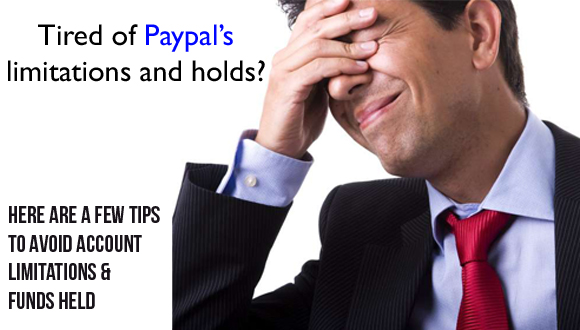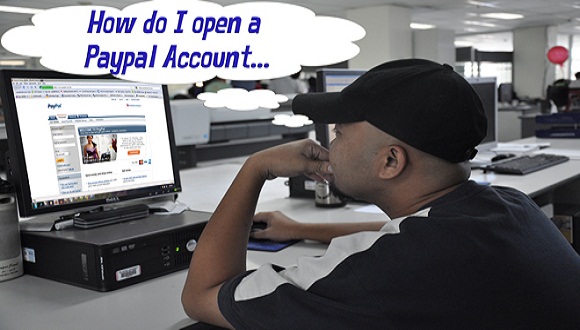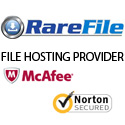PayPal Security Tips
It is important to know the security measurement of each websites and applications before using them. It might get our personal information like credit card numbers, bank accounts and passwords. Below are some list of PayPal security tips:
Password
Having a secure password is of critical importance. Never use words or numbers that are easy to trace back to you, like birthdays or family names. It’s better to use unique combinations of upper and lowercase letters mixed with numbers and symbols. It’s also smart to vary your passwords from account to account.
Secure Sites
Before buying something online, make sure the site is protected with effective data encryption. Just look for the locked padlock icon at the bottom of your browser.
Phishing
Phishing is a form of fraud designed to steal your identity. It works by using false pretenses to get you to disclose sensitive personal information, such as credit and debit card numbers, account passwords, or Social Security numbers.
One of the most typical phishing methods will involve delivering some sort of deceitful e mail that claims for being from your well-known corporation. Phishing can be completed in person, above the phone, by way of deceitful pop-up home windows, and also internet websites.
We must be aware about this in order not to be a victim.
How to Prevent Identity Theft:
1. Guard your information, online and offline.
While news headlines make identity theft seem like it’s mainly an online issue, you should recognize that there are also very real offline dangers.
2. Don’t respond to email or phone calls asking for your account information.
- Phishing emails. Phishing (fake) emails are made to resemble they’re by legit companies/websites however are in reality by identity burglars. These kinds of emails alert people involving important troubles or account problems so that people are tricked directly into clicking through which any spoof site or calling any fake customer care.
- Spoof websites. A fake website is meant to mimic a website from a well-known company. It will ask you to enter your user name and password or other account information. As soon as you make this happen, you have presented your details to somebody whom might use your identity to do you harm.
- Genuine PayPal email. We will never ask for your password or financial information in an email. You should only share information about your account once you’ve logged in to https://www.paypal.com directly from your browser.
- Phone Calls. Beware of unsolicited phone calls claiming to be from customer service centers and requesting that you provide sensitive personal information. You should hang up and call the number on the company’s website.
3. Pay safely. People have become smarter about sharing their Social Security numbers – but often don’t think twice about sharing other sorts of sensitive information during transactions.
- Checks. When paying with a check, you’re handing a piece of paper with your bank name, account number, address, and signature to a stranger. Industry analysts report that check fraud is a significant problem.
- Online payment systems. When using online payment systems like PayPal, you get a secure way to complete a transaction. With PayPal, you can pay without the merchant ever seeing your credit card or bank account number. This significantly limits the information that you share in a financial transaction.
4. Protect your computer.
- Software protection. The key to securing your own computer is to use protective software and keep it up to date. Make sure that you install all security patches available from the developer of your operating system. Run antivirus software to check incoming emails and update virus definitions frequently. Set up a firewall to prevent intruders from getting into your network or computer.
- Password protection. Always choose strong passwords to protect accounts. Mix upper and lowercase letters. Use symbol characters. Create unique passwords for each one of your accounts.
5. Stay alert.
- Act Quickly. The longer a breach goes undiscovered, the more costly it becomes. According to the Federal Trade Commission, your chances of suffering significant financial damage from identity theft are significantly lower if you discover the breach within six months of its occurrence. After six months, you are more likely to lose money or spend hours untangling a truly difficult situation.
- Monitor your accounts frequently. Log in to your PayPal account and also check credit card activity and balances often to look for suspicious activity.
6. Don’t log in your PayPal account anywhere.
It would be better that you would log in your account using your personal PC/laptop. Don’t try logging it on internet cafes, someone might be logged in their PayPal account, and you are having the same IP address. PayPal might intervene and limit your account.
Jyza
Latest posts by Jyza (see all)
- Notice to the Public: Ace Ebora Faelnar - January 19, 2014
- PayPal Issues - December 27, 2013
- BPI’s Mobile Application - September 25, 2013






 Cebu City
Cebu City 










[…] TIPS: – Paypal doesn’t ask for documents/ID’s/ or any other files via email. – If you have Paypal issues/cases you can submit/respond to Paypal via their “resolution center”. – The “Resolution Center” can attach files/pictures that you want to send to Paypal. – Paypal will never ask you to download and open executable files or *.exe files. – Only log in to Paypal through their official website. – Even Paypal apps(mobile) are not safe, we would suggest that you only log in to Paypal via browser(Chrome, Firefox, IE…). – Other Paypal security tips can be found here. Paypal Security Tips. […]